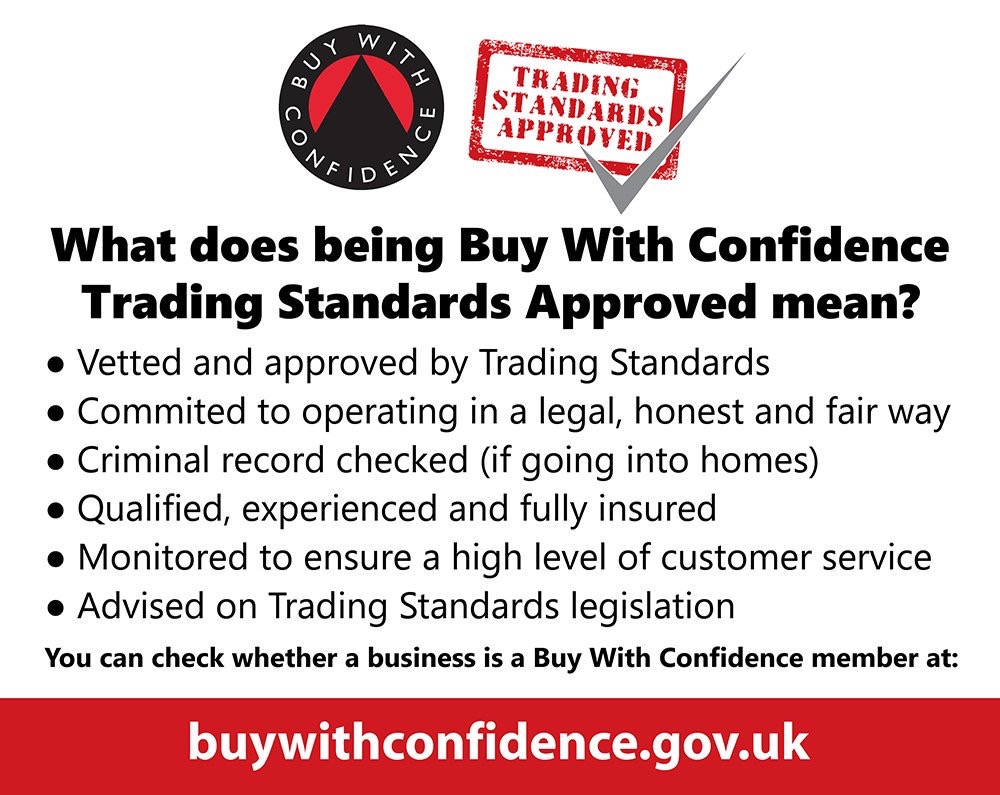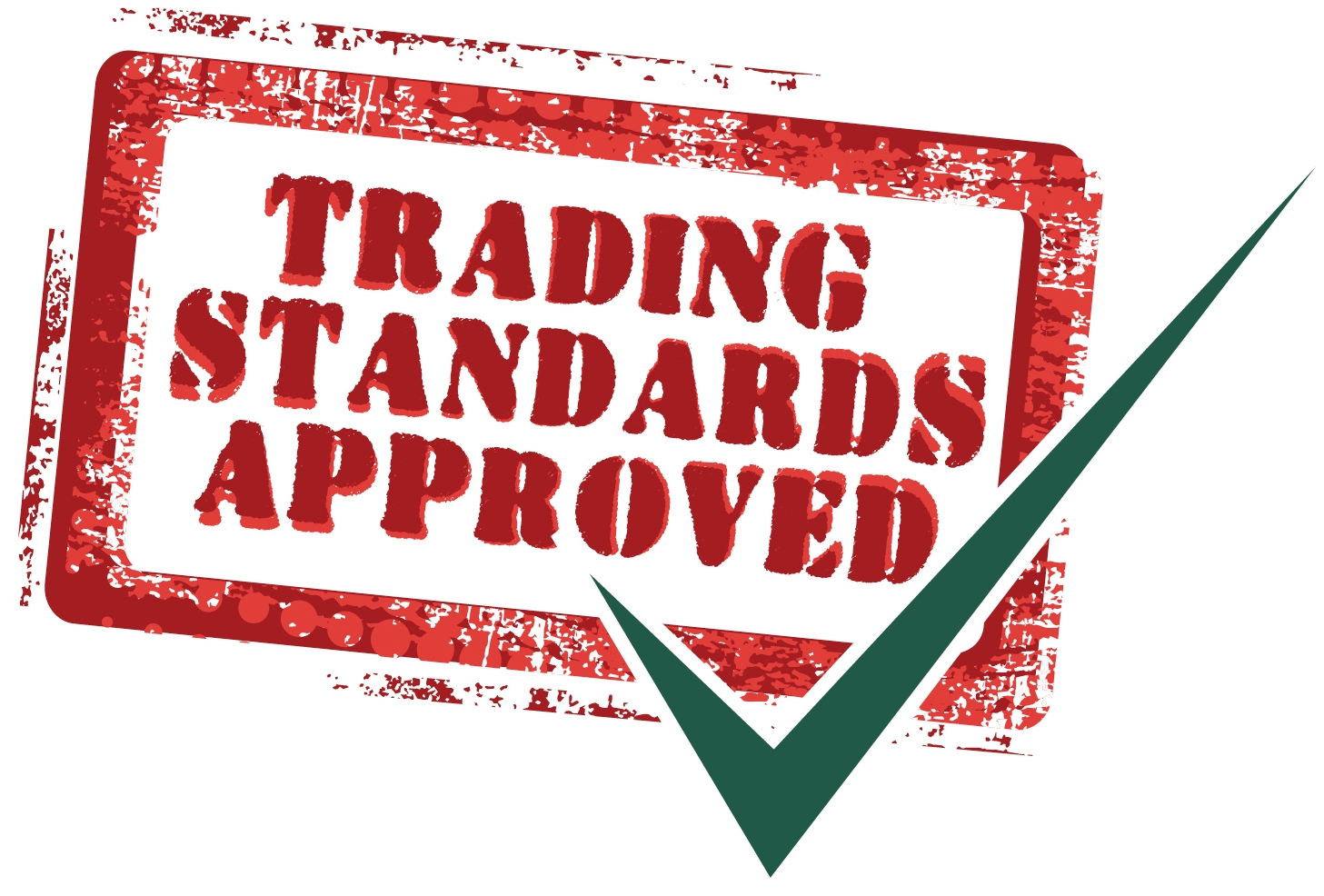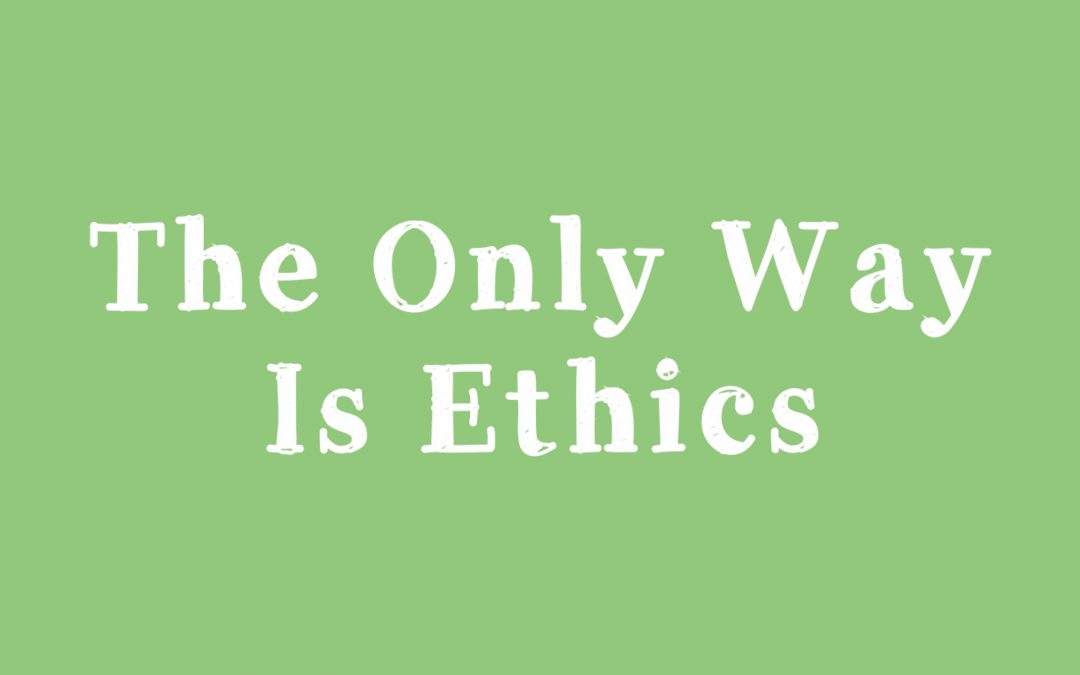The Only Way is Ethics – my take on some social media business and marketing techniques in the garden maintenance industry.
Recently, particularly within social media, I have observed quite a few business practices that, in my opinion, have come right out of the book of bad sales techniques of the late 20th century. It’s as if social media has fuelled the resurgence of the bad old days of selling, hidden within new media’s fast, widespread, instantaneous, ‘everyone is doing it – so it must be okay’ mindset. In the 1980’s and 1990’s there were pensions and timeshare scandals, mortgage endowment and payment protection insurance (PPI) mis-selling, double glazing and used car high pressure selling, and more. At that time these bad selling techniques were widespread, and lots of businesses were engaging in them – it was a ‘we can sell ice to eskimos’ culture. This gallus attitude to sales was rewarded by some, held up to be cool, and worth aspiring to by others. But guess what? Just because lots of people in sales were doing it, it didn’t make it right! The bubble burst. These sales tactics were a sham. They were unsustainable, and even though sales may have initially risen, the only sales direction that was inevitable for businesses using these tactics was a downwards spiral. Why? Because it was unethical (and in some cases, unlawful). These unethical sales and marketing tactics put sales before everything – before consumers, before employees, before the wider community, and even before business longevity. This ‘only sales matter – at any cost’ approach to selling was unsustainable. What came out of these public scandals and widespread bad practices was additional consumer protection laws, and a shift in business management philosophy onto a corporate governance, ethics, and social responsibility approach to sales and marketing.
This blog is going to give some examples of the types of bad business practices I have seen on social media that sadly appear to be becoming once again the accepted norm for some businesses.
Let’s start with photos on social media. Social media is certainly a visual medium, and the visual experience fits well with plants, flowers, gardens and gardening. Unfortunately some people and some businesses think it’s okay to use other people’s photos and pass them off as their own photos, and sometimes even passing them off as examples of their own gardening handiwork. Others simply bathe in what they perceive to be the innocence and the glory of all the retweets, likes, follows and shares they get off the back of using someone else’s nice photo they found on the internet. They know a picture paints a thousand words, and they want a piece of the publicity and attention a good garden photo can bring. Everyone is reposting and using other people’s photos on social media, so it must be okay, isn’t it? No, it’s not okay! And no, not everyone is doing it. People and businesses with ethics don’t do it.




Images of lovely plants and gardens aren’t the only target of these unethical people and businesses. In their minds, words in the public domain are also up for grabs. I’ve seen people use the same words as other businesses in their social media posts and websites, and I’ve even seen whole blog posts cut and pasted line for line and used without permission. In this particular case the business was challenged on social media by the writer of the original blog, and initially they brazenly tried to stand their ground and bluff, until legal action was initiated.
Ethics, for some, is just a word. As I used to say to my business law and accountancy students when I was a tutor on a post-graduate law course, and as a private tutor for an accountancy training provider, ‘bad boys and bad girls, don’t care’. They don’t care about ethics. They don’t care about business principles, or codes of conduct, or corporate social responsibility, or core values. They don’t care about doing the right thing because it’s the right thing to do. Many don’t even care about the law. The only thing they care about is sales, sales, sales, and in their minds, the end justifies any means they choose fit to achieve that sale.
I’ve also seen the emergence on social media of that great marketing sales puff, the word ‘guaranteed’. For example, I’ve seen a sales tagline, ‘you won’t find a better gardener in [insert town], guaranteed’. Wow! That is a big claim. Personally, I can proudly hold my hand up and say I have customers who are much better gardeners than I am. They have gained their knowledge and skill through many, many decades of gardening. They have more gardening knowledge in their green fingers than I have in my whole body. Guarantees appear to be banded about in the same way they were in the 80’s and 90’s by those unethical businesses as a way of securing a sale by any means necessary. I have seen people almost guarantee nature – e.g. ‘guaranteed no weeds’ and ‘guaranteed weed free’. What next for a sale? Will they guarantee the weather to secure a sale? Perhaps some people may think what other people and businesses choose to guarantee is up to them. Yes, of course it is, but my response would be, how much is a guarantee worth if that guarantee is based on something completely out of someone’s control and how will it be honoured? I’ve even seen words such as, ‘why would you not choose us when we are giving you this guarantee?’. Here’s my business tip; be very cautious of worthless guarantees given by faceless guarantors with no control over the outcome, with neither the desire nor the ability to honour such a guarantee. Who thinks it’s okay to gain a sale by guaranteeing a garden will be weed free for a year? Well, I’ve seen it said, by a garden maintenance business no less. It would be my guess, that such worthless guarantees may turn out to be nothing but an unethical manipulative sales tactic deployed in order to induce a sale.




Another set of examples of bad business practices on social media, and I include websites within this social media umbrella, are discounts and time limited offers. Of themselves there is absolutely nothing inherently wrong with discounts and offers, nothing at all. Except, however, when the discount or offer is nothing of the sort. For example, I have seen claims of discounts and special offers with absolutely no sign or existence of any pre-sale prices. If you see or hear someone claiming to give a discount off a set price that hasn’t even been set or calculated yet, and when such a calculation is based on multiple variables, be cautious. What this could be, when there is no pre-existing pricing model to base it on, is a ploy to give the impression to a consumer that they are getting a good deal. It’s a sales tactic. You may well think this is a legitimate sales tactic. Yes, it is, or at least it can be, and like I mentioned, there is nothing wrong with discounts or offers when they are legitimate. But, ask the garden maintenance business making these claims to present their offers for scrutiny to Trading Standards or the Advertising Standards Authority and I’m pretty sure many of them won’t dare. They won’t dare because their discounts and offers are a sham, designed to fool the consumer and secure a sale.
As a final example, I have seen a business display a membership logo indicating they are members of a professional membership organisation when they are not. Be aware that images are available on social media and unethical businesses may well choose to use images that indicate association with, connections to, or membership of these organisations in order to present a perception of credibility. If you are ever in doubt, contact the membership organisation. I have also observed businesses use fake reviews, who buy followers, mass auto-follow for a follow back, and then mass unfollow ‘bot social media accounts, I assume, to look more popular and more credible.
If you have read this far into this blog you may well have been reminded of times when you have came across similar underhand, unscrupulous and unethical business sales practices and techniques. If you haven’t, then I hope this blog will perhaps raise your awareness of how some businesses use social media to market certain sales practices that deserve to stay in the 1980’s and 90’s.
I think the only way to do business is with ethics in mind. Failing to adhere to ethical business sales and marketing is very likely to lead to a loss of credibility both personally, and as a business. Once someone is prepared to drink from the poisoned chalice of sales at any cost, to plagiarise photos and text, to use underhand and manipulative sales tactics that went out with the Ark, and with the mindset of the end justifies the means, then there is very little chance of undoing that loss of credibility. Don’t do it, and don’t fall for it. It’s fake. These businesses rely on imitation, and they are imitating an old and outdated school of bad selling. In the social media world the rise of this type of unethical business may be fast, but I predict their demise will be equally as fast. Consumers have access to the fast paced world of social media too, unlike in the 1980’s and 90’s, and as a result consumers are far more savvy.




We believe business ethics should be at the core of any business, and we believe business ethics must lead the way in sales and marketing. We are Trading Standards Approved, and have been members of their ‘Buy With Confidence’ scheme since we set up our garden maintenance business in East Kilbride in 2013. Our business is vetted every year by Trading Standards officers and we adhere to a code of conduct. I am a member of the Federation of Small Businesses, the Chartered Institute of Horticulture, and The Gardeners Guild – these organisations also have codes of conduct that members must adhere to. I have taught business and ethics at post-graduate level, and have completed a business management and sale course with good sales practices at it’s core. Please forgive me if, as a result of this background, I am particularly sensitive to business ethical issues. It is because of this sensitivity that I am keen to encourage other businesses, and consumers of gardening services, not to copy, emulate, or fall for dubious sales techniques. If it doesn’t feel right, it probably isn’t, and just because a competitor may be engaging in these shoddy business sales practices doesn’t mean other businesses should. Thankfully not every business does. There are some wonderful businesses out there. Whether you are reading this as a business or as a consumer, there are lots of businesses I see on social media doing the right thing because it’s the right thing to do. These are the types of businesses many of us prefer to buy from. Their business values mirror our own business and personal values. Their values based, principled selling, approach to sales and marketing is evidence that there is a better way to conduct and grow a business, and for me, the only way is ethics.
Michael Thomson
Owner / Director
Mr & Mrs Gardens Limited


An excellent read Michael, as you mentioned so many other types of business are doing exactly the same!
Unfortunately I know of one photographer who just steals complete web pages of text and considers it his own with the odd change of name and perhaps $ to £ sign.
Keep up the amazing work that Mr& Mrs Gardens do!
Great article
Make me look into my own ethics ,good to be accountable and not fall into bad ethics without knowing .
Thanks, Alan. I really appreciate you taking the time to read and comment on this blog post. It’s actually through knowing great photographers like yourself on social media that I recognise how hard photographers work to produce really great looking photos. It takes knowledge, skill and patience. You do a great job creating happy memories in photographs. All the more galling when you see others plagiarise words and images from others. Thanks again. Michael
Thank you very much for reading and commenting on the blog post. Yes, me too. I think about all the great people I have learned from and I think, what would they do? It’s like having Jiminy Cricket on my shoulder – always let your conscience be your guide. Thanks again. Michael